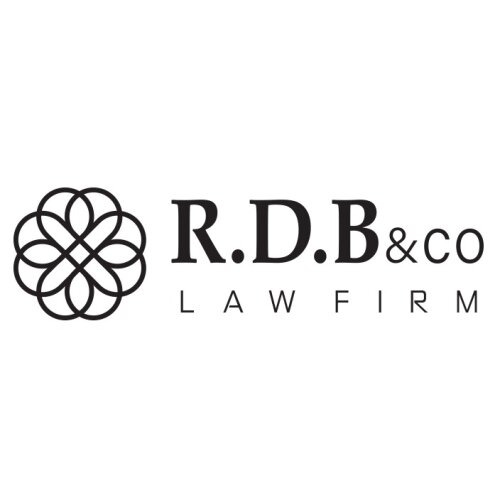Best Nursing Home Abuse Lawyers in Petaẖ Tiqwa
Share your needs with us, get contacted by law firms.
Free. Takes 2 min.
List of the best lawyers in Petaẖ Tiqwa, Israel
About Nursing Home Abuse Law in Petaẖ Tiqwa, Israel
Nursing home abuse in Petaẖ Tiqwa, Israel, involves the mistreatment of elderly residents in nursing homes, including physical, emotional, financial abuse, and neglect. Legal measures are in place to protect the elderly and ensure their rights are upheld. These laws provide frameworks for reporting abuse, investigating claims, and prosecuting perpetrators.
Why You May Need a Lawyer
If you suspect that a loved one is a victim of nursing home abuse, a lawyer can help you navigate the complex legal system. Common situations requiring legal assistance include identifying abuse, gathering evidence, filing complaints with appropriate authorities, and representing the victim in court to seek justice and compensation.
Local Laws Overview
In Petaẖ Tiqwa, nursing home abuse laws are part of Israel's broader elder care legislation. Key aspects include mandatory reporting of suspected abuse, stringent licensing requirements for care facilities, regular inspections by the Ministry of Health, and strict penalties for those found guilty of abuse. Additionally, victims have a right to pursue civil litigation to claim damages.
Frequently Asked Questions
What constitutes nursing home abuse?
Nursing home abuse includes physical abuse, emotional abuse, sexual abuse, financial exploitation, and neglect, resulting in harm or distress to the elderly.
How can I recognize signs of nursing home abuse?
Common signs include unexplained injuries, sudden behavioral changes, poor hygiene, withdrawal from social interactions, and fear of caregivers.
What should I do if I suspect nursing home abuse?
Report your concerns immediately to the nursing home administration, local law enforcement, and the Ministry of Health. Consult a lawyer for legal guidance.
Are there protections for whistleblowers reporting nursing home abuse?
Yes, Israeli law provides protection for individuals reporting suspected abuse, preventing retaliation from employers or other entities.
Can I visit my loved one while an investigation is ongoing?
Generally, yes. However, there may be restrictions to ensure the safety and integrity of the investigation.
What legal recourse is available for victims of nursing home abuse?
Victims can pursue criminal charges against the abuser and file a civil lawsuit for damages, including medical expenses, pain, and suffering.
How long do I have to file a claim of nursing home abuse?
The statute of limitations varies, but it is generally advisable to act promptly. Consulting a lawyer will help you understand specific timelines.
What evidence is needed to support a claim of nursing home abuse?
Evidence can include medical records, photographs of injuries, witness statements, and documentation of changes in behavior or living conditions.
Are nursing homes required to have policies to prevent abuse?
Yes, nursing homes must have policies and procedures to prevent and report abuse, and staff must undergo regular training on elder care laws and abuse prevention.
Can I move my loved one to a different facility during an abuse investigation?
Yes, you can transfer your loved one to another facility. Ensure the new facility is informed and that your loved one's needs are met during the transition.
Additional Resources
The following resources can provide additional support and information:
- Ministry of Health - Elderly Care Division
- Local social services in Petaẖ Tiqwa
- Non-profit organizations dedicated to elder rights
- Local law enforcement agencies
Next Steps
If you believe a loved one is experiencing nursing home abuse, take the following steps:
- Document any signs of abuse and gather evidence.
- Report the suspected abuse to the nursing home administration and the Ministry of Health.
- Contact a lawyer specializing in nursing home abuse cases to discuss your legal options.
- Ensure your loved one's immediate safety, which may involve transferring them to another care facility.
- Follow through with legal actions to hold the abusers accountable and secure appropriate compensation for the victim.
Acting swiftly can help protect your loved one and others from future abuse.
Lawzana helps you find the best lawyers and law firms in Petaẖ Tiqwa through a curated and pre-screened list of qualified legal professionals. Our platform offers rankings and detailed profiles of attorneys and law firms, allowing you to compare based on practice areas, including Nursing Home Abuse, experience, and client feedback.
Each profile includes a description of the firm's areas of practice, client reviews, team members and partners, year of establishment, spoken languages, office locations, contact information, social media presence, and any published articles or resources. Most firms on our platform speak English and are experienced in both local and international legal matters.
Get a quote from top-rated law firms in Petaẖ Tiqwa, Israel — quickly, securely, and without unnecessary hassle.
Disclaimer:
The information provided on this page is for general informational purposes only and does not constitute legal advice. While we strive to ensure the accuracy and relevance of the content, legal information may change over time, and interpretations of the law can vary. You should always consult with a qualified legal professional for advice specific to your situation.
We disclaim all liability for actions taken or not taken based on the content of this page. If you believe any information is incorrect or outdated, please contact us, and we will review and update it where appropriate.








